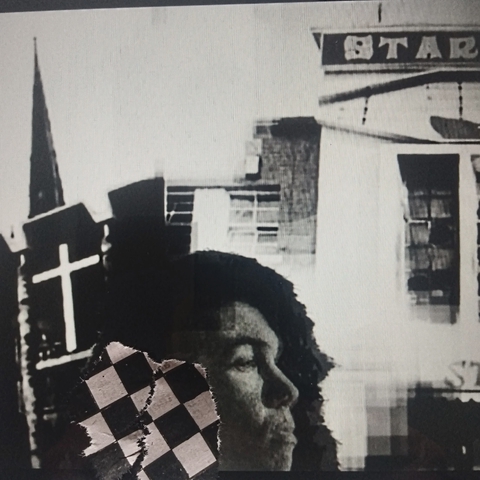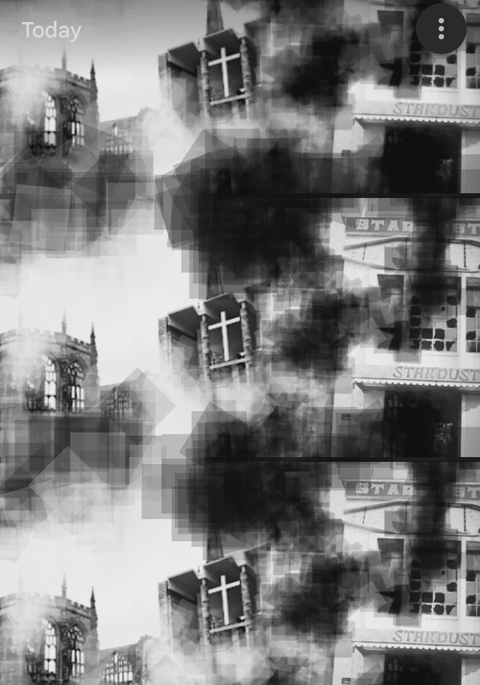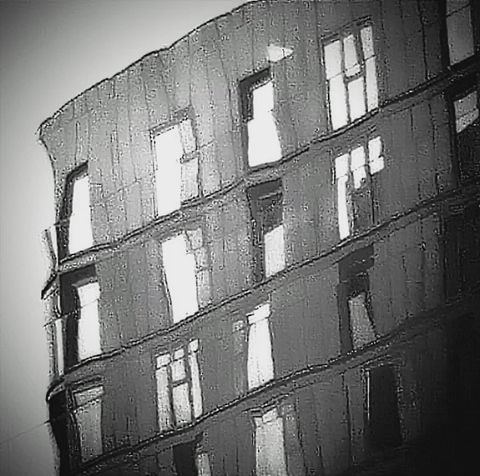I lived in Coventry, England, for five years between 1994 and 1999. I had left Dublin to study for a PhD in Philosophy at University of Warwick, which at the time was a hot bed of cutting-edge contemporary French thought, led by the maverick theorist of nihilism, Nick Land, who was originally meant to be my thesis supervisor, although he turned my work down for being ’too medievalist’ (Land resigned his post before I left the university, going on to become a guru of the Alt-Right).
This wasn’t the first time this apparently bland Midlands mid-sized city had captured the zeitgeist. Back in the late 1970s, Coventry was the specific site of the emergence of British Ska and Two-Tone, a music and cultural-political movement which married hybrid sounds to a progressive anti-racist ideology. The tentacles of this movement spread far and wide, reaching even my own neighbourhood in Northside Dublin when the Ska bands played an infamous gig at the Stardust nightclub, two weeks before a tragic fire on Valentine’s Night which was to claim the lives of 48 romantic teens. I tried to capture this strange juxtaposition in the title poem of my first chapbook, Ghost Town.
Ghost Town
I.
Last time was this quiet
Northside after they
took the bodies from the
Stardust right round the corner
from Beaumont hospital.
Two weeks earlier The Beat
and The Specials played a Ska tour
date and Jayo’s mates caused a
riot Terry Hall nearly died when
a giant speaker just missed his head.
(Irwin 2022).
The Stardust tragedy represented a crisis-point for us Northsiders, growing up in the working-class suburbs now blighted by an irresolvable trauma. Several of my school friends in Coolock had lost older siblings in the torrid fire, some of whose bodies remained unidentified for decades. I remember vividly the aftershocks of this event, the tendency to random and/or reactive violence amongst some of my damaged peers, their psychic distress, the atmosphere of total disenfranchisement, the sense of school and education (and the workplace which might follow on) being some kind of spectral hallucination without meaning, reduced to bleak absurdity. Even if I belonged only in an ancillary or indirect way to the epicentre of this existential drama, one nonetheless saw the uncaring hypocrisy of a wider society all too clearly and unequivocally.
This truly was a lost generation of youth, thrown into the abyss without any real concern for the consequences (and the effects would manifest later in violence, in a criminal underworld and elsewhere). One imagines a very different approach taken if this had been a middle-class neighbourhood but it was precisely this forsaken social and psychic alienation which bridged the gap between Coolock on the one side and Foleshill, Hillfields and Tile Hill in the late 1970s, between Dublin and Coventry. Somehow Ska music and lyrics, emerging in the English Midlands but already transported from a (Jamaican) elsewhere, seemed to speak so eloquently and so compassionately to our mutual predicament.
We were all experiencing what Iain Sinclair has referred to as a great rift between language and the material (political) environment. In a review of Sinclair’s collected poems, Firewall, Robert Bond has spoken of this as precisely ‘the collapse of our civic morality and ambition – a powerful downshift in consciousness of the 1980s and 1990s…the victim of rogue-capitalist relativism: nil by mouth indeed’ (Bond 2008). Sinclair’s poetry works connect to his later (and more well known) psychogeography of London and its environs, what Bond refers to as ‘the ghost – the afterburn – of a written urban life; and even also the skeleton of a re-born, spiritual expressive life’ (Bond 2008). This is where such a psychogeography allows us to access a ‘spiritual topography’, writing and philosophising from ‘the map of another world altogether'.
In recent short articles for Red Ogre Review (Irwin 2022, 2023, 2024a), I have sought to draw out the contours of a poetics which might do justice to such a contemporary psychogeography. Building on Jack Kerouac’s more urbane evolution of the traditional Japanese haiku form, I drew out a novel experimentation with this classical form where Keroauc claimed to have taken the ‘American haikus’ beyond strict syllable counts or prescriptive content into the ‘form’s essence’ (Irwin 2023): ‘I propose that the “Western Haiku” simply say a lot in three short lines in any Western language’ (quoted Weinreich 2004: x). With reference to sources such as John Cooper Clarke and Jim Carroll (via Kurt Cobain), I pictured an emergent conception of ‘punk haikus’, which might do the (spiritual and political) job required for us today (Irwin 2023, 2024a).
What specific lessons might my auto-narrative of Midlands days and the juxtaposition of Coventry and Dublin via Ska poetics have for this ongoing story? Today as I write this (Thursday, 18th April 2024, 13.57pm, in a Birmingham café), a long overdue governmental enquiry1 in Ireland into the Stardust tragedy is edging towards its final verdicts. Life always seems to have a way of moving on, while constantly looking over its shoulder at the tragic and the unresolved. In December 2022, that arch-poet of Ska, Terry Hall, died, bringing on a whole avalanche of reminisces and retrospective reinterpretations for those of who followed in his inspiring slipstream.
The poet David R. Mellor captured some of this collective grief in his poem titled simply ‘Terry Hall’, a short excerpt provided here:
I heard the news
At 4.30 a.m. exactly
I knew it would hurt
And it did so badly
A voice that blew away the fluff of the 80’s
A sincere stare
And words that were rich and plenty…
An honesty that left you feeling less alone
A life of pain
etched in words that could have been my own
I heard the news
At 4.30 a.m. exactly
I knew it would hurt
And it did so badly
(Mellor 2022).
A related article in The Quietus by the music journalist Neil Kulkarni similarly grasped the psychogeography of Hall’s artistic achievements, alongside his Specials compatriots and the wider Ska movement. Entitled ‘Coventry and a Spirit of Unbelonging: Terry Hall Remembered’ (Kulkarni 2022), Kulkarni disavows Philip Larkin, also a Coventrian, in favour of Hall as the Coventry poet: ‘in the death of Terry Hall, we have lost our greatest ever poet’ (Kulkarni 2022). For Kulkarni, it is the voice and the visage of Hall (‘mordant, still faintly smiling, never quite sneering’) which balances or mixes a spirit of ‘resignation and resistance…a city of bombs and rebirth…[where] medieval and modernist are crushed together so abrasively’ (Kulkarni 2022).
Between Coventry and Dublin, then, and between the upcoming Stardust verdict and the looking back at Terry Hall the poet, I would like to suggest that the contours of a psychogeography2 emerge which can draw on the haiku (especially in its Kerouacian ‘American haikus’ version) and on the Two-Tone poetry of Ska. Let me conclude with some short, sharp shock renditions of my own which we might classify under a ‘Coventry haikus’ banner. I am currently preparing a collection of these succinct texts.
Two-Tone Poetics, No. 1

30 years later
Two-Tone loos
Less smell of piss
Midlands David Lynch
Isabella Rossellini phone
Calling Terry Hall
Goth in Covid mask
Bald with stringy beard
Is there no God?
Two-Tone Poetics, No. 2

Missed Ska beat
The Stardust burned
No one paid
Lower Precinct all sparkle
Natives still shout WANKER
At flashy new consumers
Jerry Dammers’ hair
Gets stranglier yearly
He channels elves
Sex games at Canley
The Crematorium sighs
Love is an ideology
Train station dust
Rises to meet
Incoming Birmingham
Two-Tone Poetics, No. 3

George Shaw canvas
In the Tile Hill woods
With music by The Selecter
At Berskwell
The swans choke
On the ennui of Myth
Old Ska dudes
Wearing safari shirts
Discussing neo-racism
Footnotes
1.As I concluded this essay, Irish news RTE announced a verdict of ‘unlawful killing’ for the 48 victims of The Stardust (18.04.24 15.04pm).
2.One of my first published poems was entitled ‘Psychogeography’ and emerged from a certain hallucinatory experience of Coventry via Dublin. ‘Psychogeography’, Showbear Family Circus Journal of Liberal Arts, Brooklyn, Autumn 2019. Adapted version in Espacio Fronterizo (Borderland/ Espace Frontière), Summer 2022.
References
Bond, Robert (2008) ‘Babylon Afterburn: Adventures in Iain Sinclair’s The Firewall’.
Carroll, Jim (1993) ‘Fear of Dreaming’. The Selected Poems of Jim Carroll. Penguin, New York.
Carroll, Jim (1994) ‘8 Fragments For Kurt Cobain’. The Literary Renaissance, Kentucky.
Irwin, Jones (2022) ‘Ghost Town’. Ghost Town. Moonstone Press, Philadelphia.
Irwin, Jones (2024b) ‘Coventry Haikus’. Deep Image or A Painting By Jeffrey Dahmer. Tofu Ink Press, California.
Kerouac, Jack (2004) Book of Haikus. Enitharmon Press, London.
Kulkarni, Neil (2022) ‘Coventry and a Spirit of Unbelonging: Terry Hall Remembered’. The Quietus.
Mellor, D.R. (2022) ‘Terry Hall’. The Quietus.
Stryk, Lucien (1985) ‘Introduction’ in Basho (1985) On Love and Barley – Haiku of Basho. Penguin, London.
Weinreich, Regina (2004) ‘Introduction: The Haiku Poetics of Jack Kerouac’ in Kerouac, Jack (2004) Book of Haikus. Enitharmon Press, London.